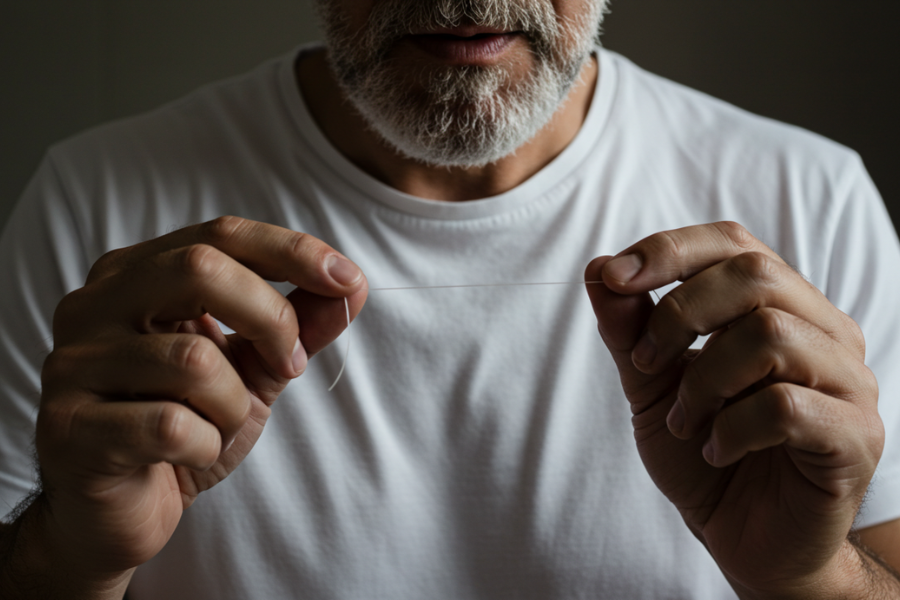Keeping on top of your dental health is easy when you know how. And today, our dentists are helping patients in Lancaster to take better care of their mouth, teeth and gums. Let’s jump into some common questions about flossing, so you know exactly how to prioritise your oral health.
So, when should I floss?
Most dentists recommend flossing at the time you brush. It should be done twice a day, and you’ll generally need to do it after breakfast and the evening meal. To be clear, flossing is in addition to brushing – you’ll still have to use your toothbrush twice a day, for two minutes each time.
Why should I floss?
Brushing alone can’t get rid of all the bacteria in the mouth and bits of food that may be stuck between the teeth. That’s because the bristles on your toothbrush aren’t always fine enough to get into those tiny gaps in your smile. Dental tape or dental floss, however, can help to wiggle into these spaces and pull out anything that’s got trapped.
Does flossing my teeth hurt?
No, it shouldn’t hurt, but it may cause some sensitivity in your gums if you’ve recently taken it up. If you notice bleeding in the gums during flossing (or brushing) and it doesn’t improve over a couple of days, you might need to book in for a check-up – it can be a sign of early gum disease, for example.
Are there any negatives of flossing?
Flossing should be done correctly to prevent any damage to your teeth, gums and dental work – and to ensure no bacteria gets into your bloodstream, which could cause infection. Your dentist can show you how to do this safely.
Should I floss with dental tape or dental floss?
Dental tape is slightly thicker than floss, which makes it easier to use, and great for larger spaces between the teeth. If you’ve got smaller gaps, you might want to try dental floss.
What about interdental brushes?
These are also great options. In some cases, they’re recommended by your dentist over other products – for example, some patients with fixed braces may find them easier to keep clean with an interdental brush.
How do I book a dental appointment with VIVA?
You can get in touch with us through our contact page. We can then advise patients in Lancaster on the right products and techniques to get the best out of your smile and keep their teeth healthy.

